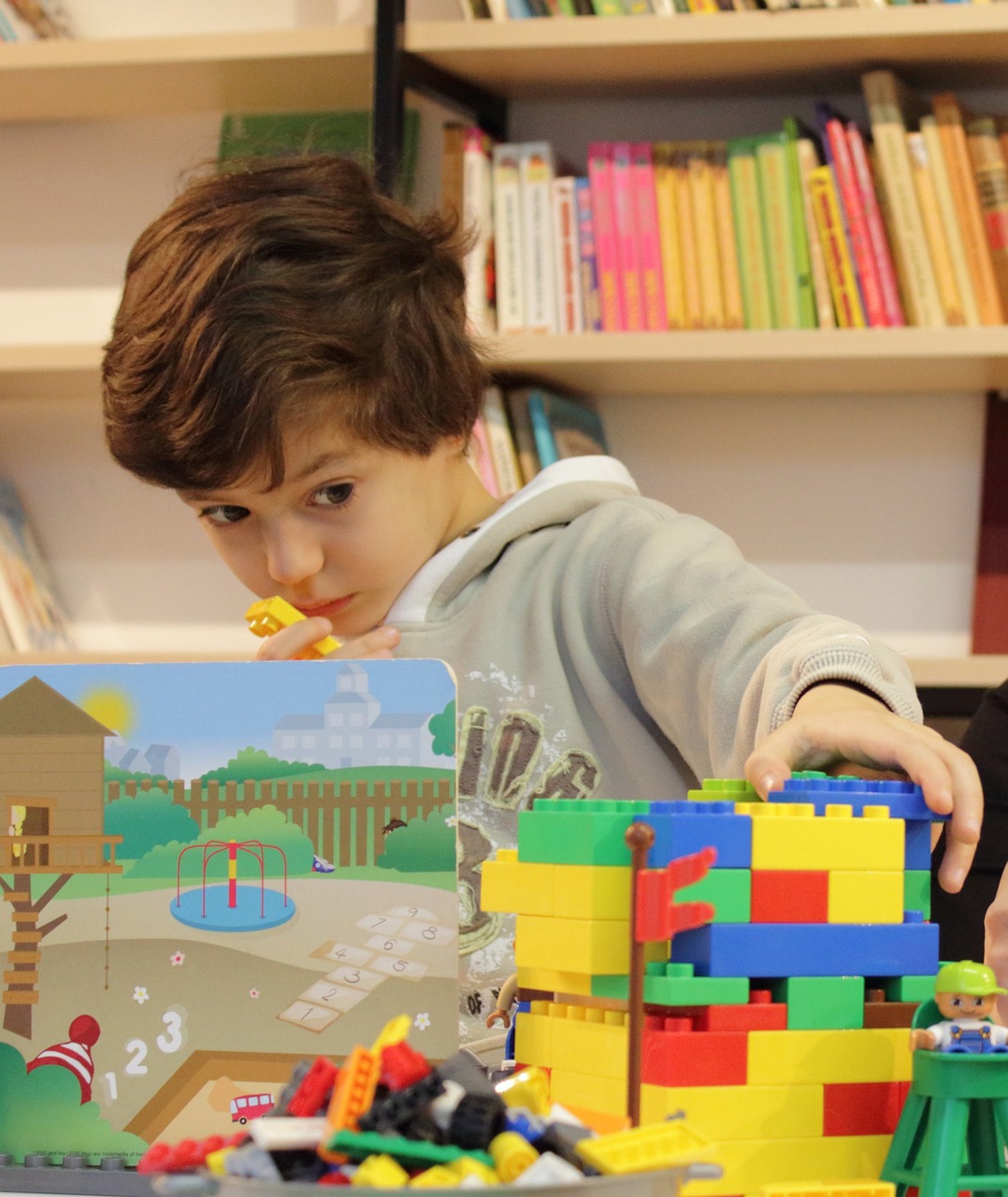Parenting is both a rewarding and challenging journey, one that shapes not only your child’s future but also the dynamics of your family life. While there is no universal manual for parenting, certain principles and practices can help you navigate the complexities and ensure your child grows into a well-rounded, emotionally healthy individual. This comprehensive guide will delve into the best parenting tips, strategies, and practices, providing you with the tools you need to raise confident, responsible, and happy children.
Table of Contents
1. Introduction to Good Parenting
Good parenting involves more than just meeting your child’s basic needs. It’s about fostering an environment where they feel loved, supported, and encouraged to grow into their best selves. Good parenting requires a balance of nurturing, discipline, and guidance. It involves being a role model, a teacher, and a friend, all while maintaining the boundaries that ensure your child’s safety and well-being.
Key Points:
- Good parenting shapes your child’s emotional, social, and intellectual development.
- It involves consistent, loving discipline and effective communication.
- A strong parent-child relationship is the cornerstone of good parenting.

2. Establishing a Strong Parent-Child Relationship
A strong parent-child relationship is the foundation of effective parenting. When your child feels secure and loved, they are more likely to develop confidence and resilience. This relationship is built on trust, understanding, and open communication.
Strategies to Strengthen the Parent-Child Bond:
- Spend Quality Time Together: Engage in activities that your child enjoys, whether it’s playing games, reading together, or exploring nature. Quality time helps build a strong emotional connection.
- Listen Actively: Show genuine interest in what your child has to say. Listening actively means giving your full attention, making eye contact, and responding thoughtfully.
- Express Affection: Regularly show affection through hugs, praise, and positive reinforcement. Physical touch and kind words are powerful tools for building a strong bond.
- Be Consistent: Consistency in your actions, words, and expectations creates a stable environment where your child knows what to expect.
3. Effective Communication: The Foundation of Good Parenting
Communication is key to understanding your child’s needs, fears, and aspirations. It also plays a crucial role in teaching values, setting expectations, and resolving conflicts.
Tips for Effective Communication:
- Use Age-Appropriate Language: Tailor your language to your child’s age and understanding. Simplify complex concepts for younger children and engage in more in-depth discussions with older kids.
- Encourage Open Dialogue: Create an environment where your child feels comfortable expressing their thoughts and feelings without fear of judgment or punishment.
- Teach Active Listening: Model and encourage active listening by repeating what your child says, asking questions, and showing empathy.
- Address Conflicts Calmly: When disagreements arise, address them calmly and respectfully. Use these moments to teach conflict resolution skills.
4. Disciplining with Love: Setting Boundaries and Expectations
Discipline is an essential aspect of parenting, but it should always be administered with love and respect. The goal of discipline is not just to correct behavior but to teach self-control, responsibility, and empathy.
Effective Disciplinary Strategies:
- Set Clear Boundaries: Children need to know what is expected of them. Clearly define the rules and explain the reasons behind them.
- Use Positive Reinforcement: Reinforce good behavior with praise, rewards, or privileges. Positive reinforcement encourages children to repeat desirable behaviors.
- Implement Consequences: When rules are broken, apply appropriate consequences that are related to the behavior. Ensure that the consequences are fair, consistent, and not punitive.
- Practice Time-Outs: For younger children, time-outs can be an effective way to help them calm down and reflect on their behavior. Make sure time-outs are brief and used consistently.
5. Fostering Emotional Intelligence and Resilience
Emotional intelligence (EI) is the ability to recognize, understand, and manage one’s own emotions, as well as the emotions of others. Resilience is the capacity to recover quickly from difficulties. Together, these traits are crucial for navigating life’s challenges.
How to Foster Emotional Intelligence:
- Teach Emotion Vocabulary: Help your child label their emotions by introducing a wide range of emotional words, such as “frustrated,” “excited,” or “anxious.”
- Model Emotional Regulation: Demonstrate how to manage emotions in a healthy way, such as taking deep breaths when frustrated or talking through feelings.
- Encourage Empathy: Teach your child to recognize and consider the feelings of others. Discuss how actions affect other people and encourage compassionate behavior.
Building Resilience in Children:
- Promote a Growth Mindset: Encourage your child to see challenges as opportunities for growth. Praise effort rather than just outcomes.
- Allow Controlled Risk-Taking: Let your child take on age-appropriate challenges. Experiencing failure and success helps build resilience.
- Provide a Supportive Environment: Be a source of comfort and support when your child faces setbacks. Encourage problem-solving rather than immediately fixing problems for them.
6. Encouraging Independence and Responsibility
Teaching your child to be independent and responsible is essential for their development into self-sufficient adults. Independence allows children to develop confidence in their abilities, while responsibility teaches them the importance of accountability.
Tips to Encourage Independence:
- Assign Age-Appropriate Tasks: Give your child responsibilities that match their age and abilities, such as making their bed, packing their lunch, or helping with household chores.
- Encourage Decision-Making: Allow your child to make choices, whether it’s picking out their clothes or deciding how to spend their free time. This helps them develop decision-making skills and confidence.
- Support Problem-Solving: When your child faces a problem, guide them through the process of finding a solution rather than solving it for them. This fosters critical thinking and independence.
- Promote Self-Sufficiency: Gradually increase the level of independence by allowing your child to complete tasks on their own, such as managing their homework or organizing their time.
7. The Role of Education and Lifelong Learning
Education is a critical component of your child’s development, but it extends beyond the classroom. Lifelong learning is the concept that learning is continuous and can take place at any stage of life. Instilling a love for learning in your child can set them on a path of intellectual curiosity and success.
Fostering a Love for Learning:
- Create a Stimulating Environment: Surround your child with books, educational toys, and learning materials that encourage exploration and curiosity.
- Be Involved in Their Education: Attend school meetings, communicate with teachers, and stay informed about your child’s academic progress. Show interest in what they are learning.
- Encourage Curiosity: Answer your child’s questions and encourage them to ask more. Engage in discussions about topics that interest them and explore these topics together.
- Support Extracurricular Activities: Encourage your child to participate in extracurricular activities that align with their interests, such as sports, music, or art. These activities promote diverse learning experiences.
8. Promoting Physical Health and Well-being
Physical health is the foundation of overall well-being. Encouraging healthy habits in your child from a young age sets the stage for a lifetime of good health.
Healthy Habits to Promote:
- Balanced Diet: Ensure your child eats a variety of fruits, vegetables, whole grains, and lean proteins. Limit sugary snacks and drinks.
- Regular Exercise: Encourage physical activity through play, sports, or family outings. Aim for at least 60 minutes of moderate to vigorous activity each day.
- Adequate Sleep: Establish a consistent bedtime routine and ensure your child gets the recommended amount of sleep for their age group.
- Hygiene Practices: Teach your child good hygiene habits, such as washing hands regularly, brushing teeth twice a day, and bathing regularly.
9. The Importance of Socialization and Peer Relationships
Socialization is crucial for your child’s emotional and social development. Through interactions with peers, children learn important social skills such as sharing, cooperation, and conflict resolution.
Supporting Your Child’s Social Development:
- Encourage Social Interactions: Facilitate playdates, group activities, and opportunities for your child to interact with peers. These interactions help your child develop social skills.
- Teach Social Skills: Guide your child in developing essential social skills, such as taking turns, listening to others, and expressing themselves clearly.
- Address Bullying: Be aware of signs of bullying and address them promptly. Teach your child how to stand up for themselves and others in a respectful manner.
- Promote Team Activities: Encourage participation in team sports or group activities that require cooperation and teamwork. These experiences teach valuable lessons about working with others.
10. Managing Digital and Screen Time
In today’s digital age, managing screen time is a significant challenge for parents. While technology offers educational benefits, excessive screen time can have negative effects on your child’s physical and mental health.
Strategies for Managing Screen Time:
- Set Screen Time Limits: Establish clear guidelines for how much screen time is allowed each day. The American Academy of Pediatrics recommends no more than one hour of screen time per day for children aged 2 to 5 years, and consistent limits for older children.
- Encourage Outdoor Play: Promote physical activity and outdoor play as alternatives to screen time. Spending time outside has numerous benefits for your child’s health and well-being.
- Monitor Content: Be aware of what your child is watching, playing, or browsing. Ensure that the content is age-appropriate and educational.
- Create Tech-Free Zones: Designate certain areas of the home, such as the dining room and bedrooms, as tech-free zones. This encourages family interaction and healthy sleep habits.
11. Balancing Work, Life, and Parenting
Achieving a balance between work, life, and parenting is a challenge faced by many families. Striking this balance is essential for both your well-being and your child’s development.
Tips for Balancing Work and Parenting:
- Set Priorities: Identify your top priorities in both work and parenting. Focus on what matters most and let go of less important tasks.
- Create a Family Schedule: Establish a routine that works for your family, including designated times for work, family activities, and relaxation.
- Be Present: When you’re with your child, be fully present. Put away distractions like phones or work-related tasks and focus on spending quality time together.
- Seek Support: Don’t hesitate to ask for help from your partner, family, or friends. Parenting is a team effort, and it’s okay to lean on others for support.
12. Common Parenting Challenges and How to Overcome Them
Parenting comes with its share of challenges, from dealing with tantrums to navigating teenage rebellion. Understanding common parenting challenges and how to address them can help you stay calm and effective.
Common Challenges and Solutions:
- Tantrums: Stay calm, acknowledge your child’s feelings, and offer comfort. Set clear expectations and use time-outs if necessary.
- Sibling Rivalry: Encourage positive interactions between siblings, set individual time for each child, and address conflicts fairly.
- Teenage Rebellion: Maintain open communication, set clear boundaries, and offer guidance while respecting your teen’s growing independence.
- Sleep Issues: Establish a consistent bedtime routine, limit screen time before bed, and create a calm sleeping environment.
13. Frequently Asked Questions (FAQs)
Q1: How can I improve my relationship with my child?
- A: Spend quality time together, listen actively, show affection, and be consistent in your actions and expectations. Building trust and open communication is key to a strong parent-child relationship.
Q2: What are the most important qualities of a good parent?
- A: Patience, empathy, consistency, and effective communication are essential qualities of a good parent. Additionally, being a positive role model and providing a loving, supportive environment are crucial.
Q3: How do I set boundaries without being too strict?
- A: Clearly communicate expectations and the reasons behind them. Use positive reinforcement and appropriate consequences to encourage good behavior. Balancing firmness with empathy helps maintain respect and understanding.
Q4: How can I help my child develop social skills?
- A: Encourage regular social interactions, teach essential social skills, and model respectful behavior. Activities like team sports and group playdates also help your child learn cooperation and communication.
Q5: What is the best way to handle screen time?
- A: Set clear limits on screen time, encourage outdoor play, monitor content, and create tech-free zones in the home. Prioritizing educational and age-appropriate content is also important.
Q6: How can I teach my child responsibility?
- A: Assign age-appropriate tasks, encourage decision-making, support problem-solving, and gradually increase your child’s independence. Teaching responsibility involves giving your child opportunities to demonstrate accountability.
Conclusion
Good parenting is an ongoing process that involves love, patience, and the willingness to adapt as your child grows and changes. By focusing on building a strong parent-child relationship, fostering emotional intelligence, and promoting healthy habits, you can guide your child toward a successful, fulfilling life. Remember, there is no perfect parent, but with the right tools and strategies, you can create a positive, nurturing environment that supports your child’s development.
This guide provides a roadmap for navigating the challenges of parenting while ensuring your child grows into a well-rounded, emotionally healthy individual. Implement these tips and strategies, and you’ll be well on your way to becoming the best parent you can be.



